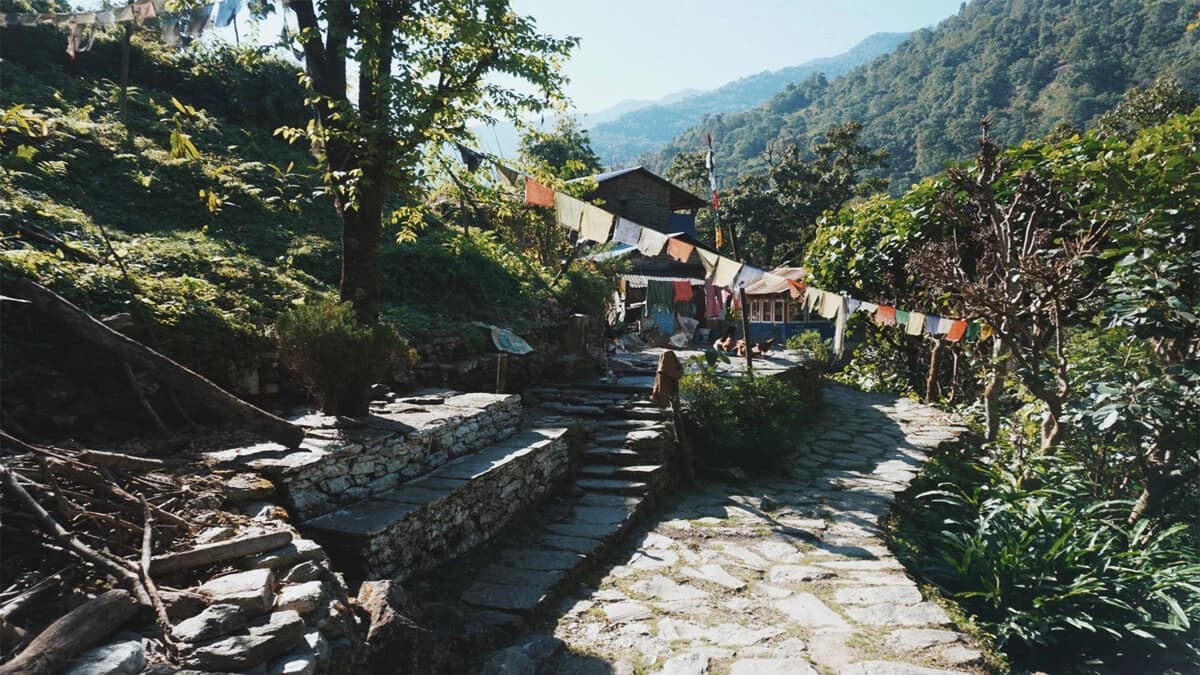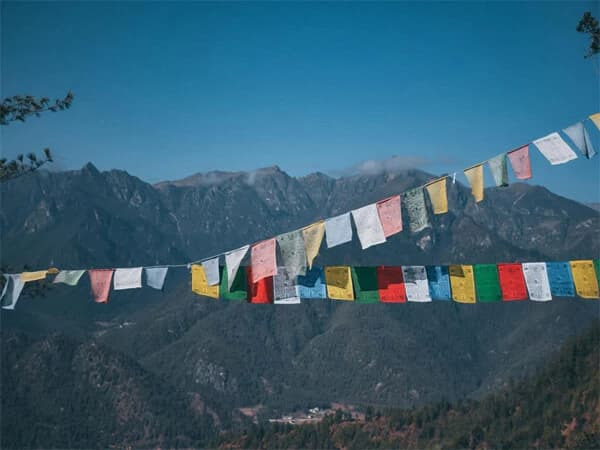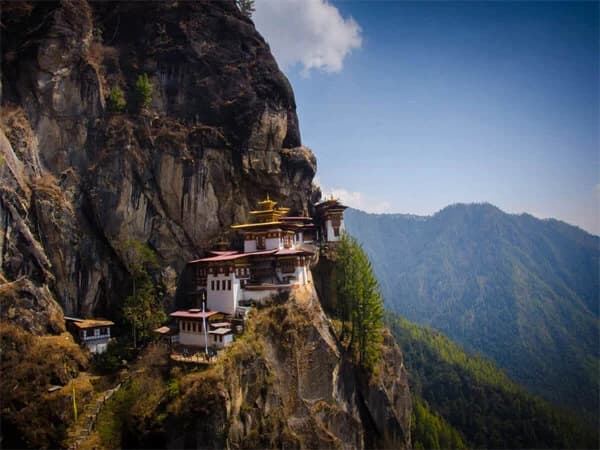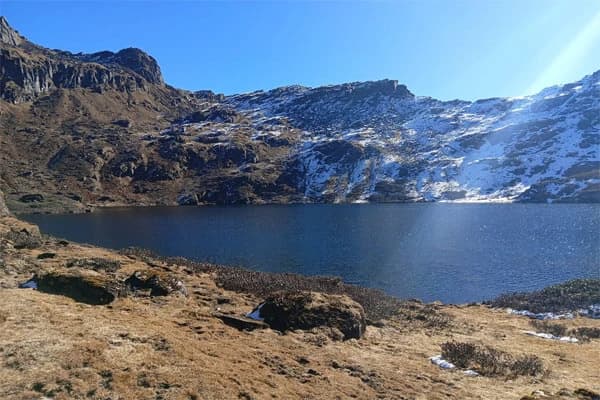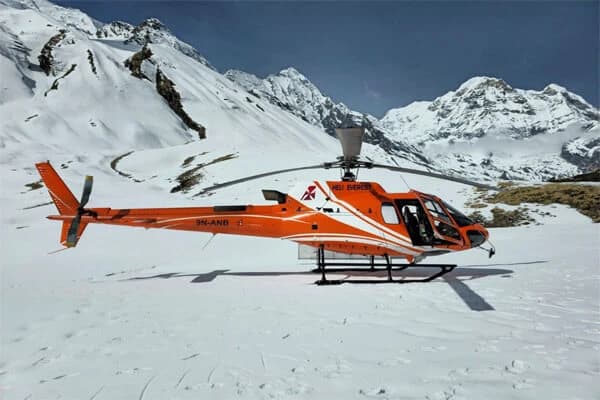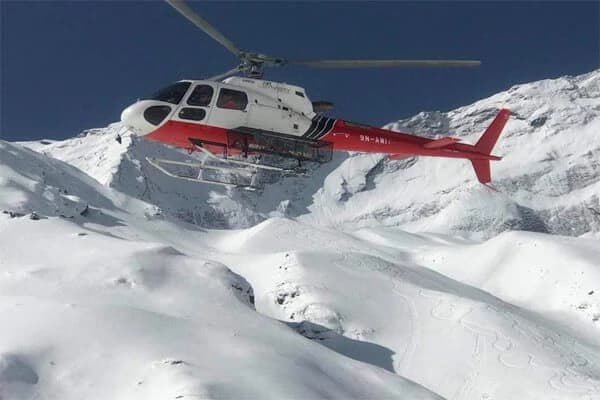Why is trekking in Nepal Important? Different people have different opinions and perspectives of “Why Trek?” Before talking about the importance of trekking, let’s discuss “What is trekking?” at a glance.
Trekking is a journey that is harder than hiking but easier than mountaineering, expedition, and peak climbing. It often takes you from lower altitudes to higher hills and the vicinity of the Himalayas.
This is the most common form of traveling that rewards you not only with natural wonders but also cultural beauties. Moreover, you get to do adventurous trip for a lifelong experience.
We often hear that “traveling is the best way of learning.” By reading a book and watching various informative media gives little knowledge about a particular place and its assets. You might be compelled to believe what others have shown or documented about such places.
Unlike this, trekking to such a place gives you firsthand knowledge and experience about its nature and culture. Visiting such natural and cultural sites gives you a sense of completeness because you witness the truth.
Yeah, some treks might be challenging and comparatively more difficult than other treks. Various difficult treks in the world have allured thousands of daredevils to do them.
To name a few of the world’s most difficult treks The Death Trail – Mount Huashan, China, The Snowmen Trek in Bhutan, and Everest Three High Passes Trek, Nepal.
Besides natural and cultural beauties, trekking has several benefits for physical, social, and mental health. Nepal Trekking is important for people of all ages, occupations, and corners of the globe. Perhaps, this is the best way to understand the nexus between human beings and nature. As a result, we begin respecting our Mother Nature for her nurture of us.
Why is trekking in Nepal important?
Nepal is a safe place for all types of travel activities for all travel lovers from around the world. Trekking in Nepal takes you along the wonderful trails amidst nature and the snowcapped mountains.
The presence of 8 of the 14 peaks above 8,000m in the world, it is also known as the Capital of the Himalayas. Various Nepal trekking routes are developed to connect you with these Great Himalayas and trekking peaks.
Within an area of 147,181 sq. m., you get to experience differences in climate, vegetation, lifestyle, and geography. This variation is the answer to “Why is trekking in Nepal important?” Trekking is the best alternative to learning about local cultures and cuisines while enjoying nature and adventure.
You can find short treks around Kathmandu and Pokhara, regular base camp treks, off-the-beaten-path treks, easy treks, and difficult treks as well. No matter what age, part of the world, economic background, experience, and interest you are, you get the most appropriate trekking packages in Nepal.
If you are beginner trekkers, do Ghandruk Poon Hill Trek, Panchase Trek, or many other hiking tours as well. For those having little experience, there are Annapurna Base Camp Trek, Mardi Himal Base Camp Trek, Langtang Valley Trek, etc.
If you love off-the-beaten-path treks, why not try for Upper Dolpo Trek, Upper Mustang Trek, Limi Valley Trek, or Manaslu Circuit Tsum Valley Trek? If you love more challenging treks, we offer Annapurna Circuit Trek, Everest Cho La Pass Trek, Kanchenjunga Base Camp Trek, or Makalu Base Camp Trek.
Physical fitness
Everest Three High Passes Trek, Makalu Base Camp Sherpani Col Pass Trek are recommended for those loving difficult treks in Nepal. Besides trekking, you can choose peak climbing such as Island Peak Climbing, Mera Peak Climbing, etc. For those having a dream of an expedition in Nepal, book any of the eight 8,000ers!
For a family trek, we recommend you Everest View Trek, Royal Trek Annapurna, Tamang Cultural Heritage Trek, Annapurna Community Homestay Trek, etc.
We hope the information mentioned above satisfies your curiosity “Why is trekking in Nepal important?” Now, let’s discuss about the benefits of trekking to the Himalayas and hilltops.
The first and foremost benefit of trekking is physical fitness. Walking between 4 and 6 hours along the uphill and downhill trails means a good exercise of your muscular parts. Trekking is far better than going to a gym center or a yoga session. The movements along the hilltops and the Himalayas helps you lose weight. And, doesn’t it keep you all time fit physically?
Stress Management
Traversing amidst nature and tranquil routes help you forget worries of daily activities. Witnessing snowcapped mountains, green forests inhabited by various flora and fauna, caressing gurgling water, and talking with innocent people……….just WOW! You get to spend most of the time in wilderness; quite away from the crowded cities and hectic schedule. It’s time to contemplate on yourself!
Cardiovascular Strength Improvement
Trekking improves your cardiovascular strength. The heart pumps the blood harder to cope with lower level of oxygen in high altitude. This cooperates with the muscles and the brain that benefits the circulatory and respiratory systems. The pure air in the countryside cleans your respiratory system. At least, during the trip, you avoid inhaling the polluted city air due to CO2 emissions.
Social Relationship Building
During trekking trips, you get to meet fellow trekkers from around the world. Likewise, you visit the rustic but cultural villages of the Himalayas. Talking with them helps for social relationship building. You not only learn their language and culture but also teach yours! Thus, trekking is an opportunity for cultural exchange while respecting others and being respected by them.
Helping out one another in the harsh time in the wilderness develops a lifelong friendship. Sharing the important memories among one another gives you courage and motivation to keep going along the hard trails, if any. As a whole, trekking helps us extend fraternity throughout the world.
Personal and Professional Skills Development
Besides physical, social, and mental health, trekking helps you develop personal and professional skills. It rewards you with lifelong skills that matter most to guide your entire life through the right pattern.
To make your trip a complete success, planning, setting goals, collecting the necessary information, and deciding are important. After decision making, you join training, learn to deal with unwanted circumstances, and analyze the possible harshest situations during the trip.
These are the most important management skills required in the workplace. Thus, trekking is beneficial for getting the most appropriate employment opportunity, too.
Inner Health Benefits
During the trekking trips, we recommend you to avoid consumption of alcohol and cigarette, non-veg items, tea and coffee. Have enough hygienic food, rest, sleep, and drinkable water throughout the trip. This helps you overcome acute mountain sickness (AMS). Avoiding harmful substances and having more quantity of water means cleaning your inner health. Trekking in the remote areas for longer time also helps you quit bad habits if any.
Experience flora and fauna
Trekking often takes you across the dense forest of all types. These forests have different species of plants, butterflies, birds, and animals. Variation in altitude from the sea level supports variation in flora and fauna. For example, flora and fauna found in the Annapurna Mountain Region are distinct from that of you see during Everest Base Camp Trek. If you are doing researches on flora and fauna, trekking is more advantageous.
Experience Local Cultures and Cuisines
Trekking lets you experience local cultures and cuisines of the local trekking destinations. Especially, while in teahouse trekking in Nepal, you spend nights at local teahouses, lodges, and home stay sites. Different regions are dwelt by different ethnic and tribal communities. They have different cultures and food items based on their practices and availability of edible stuffs. Book Festival Treks in Nepal to witness such local cultures and taste local food items prepared by using organic grains and vegetables.
A Break from Busy Life Schedule
Above all, you need a break from busy life schedule, ain’t it? No one likes working throughout the year just like a machine, right? You need some time for recreation and self-assessment so that you can recognize yourself. Booking a backpacking trip to the wilderness on the lap of the Himalayas is the best way to stay away from technology, gadgets, and daily activities. Therefore, trekking helps you be dedicated, motivated, and creative all at once!
Conclusion: Why is Trekking in Nepal Important?
Nepal Trekking is a wonderful lifelong experience amidst nature and the mountains. It gives us several physical, social, and mental benefits that increase focus and productivity both in personal and professional life.
Trekking in Nepal has been far easier than it was around the 1950s when Herzog’s Annapurna Expedition or Tenzing-Hillary made the 1953 Everest Expedition. Nepal houses majority of 8,000ers, 1,310 trekking peaks, the Trans-Himalayan trekking destinations, and small to high hilltops.
This is why, trekking in Nepal is important for trekkers of all ages, experiences, and parts of the world. We assure you that every penny you spend on your trip is an investment for a lifelong experience in Nepal!

